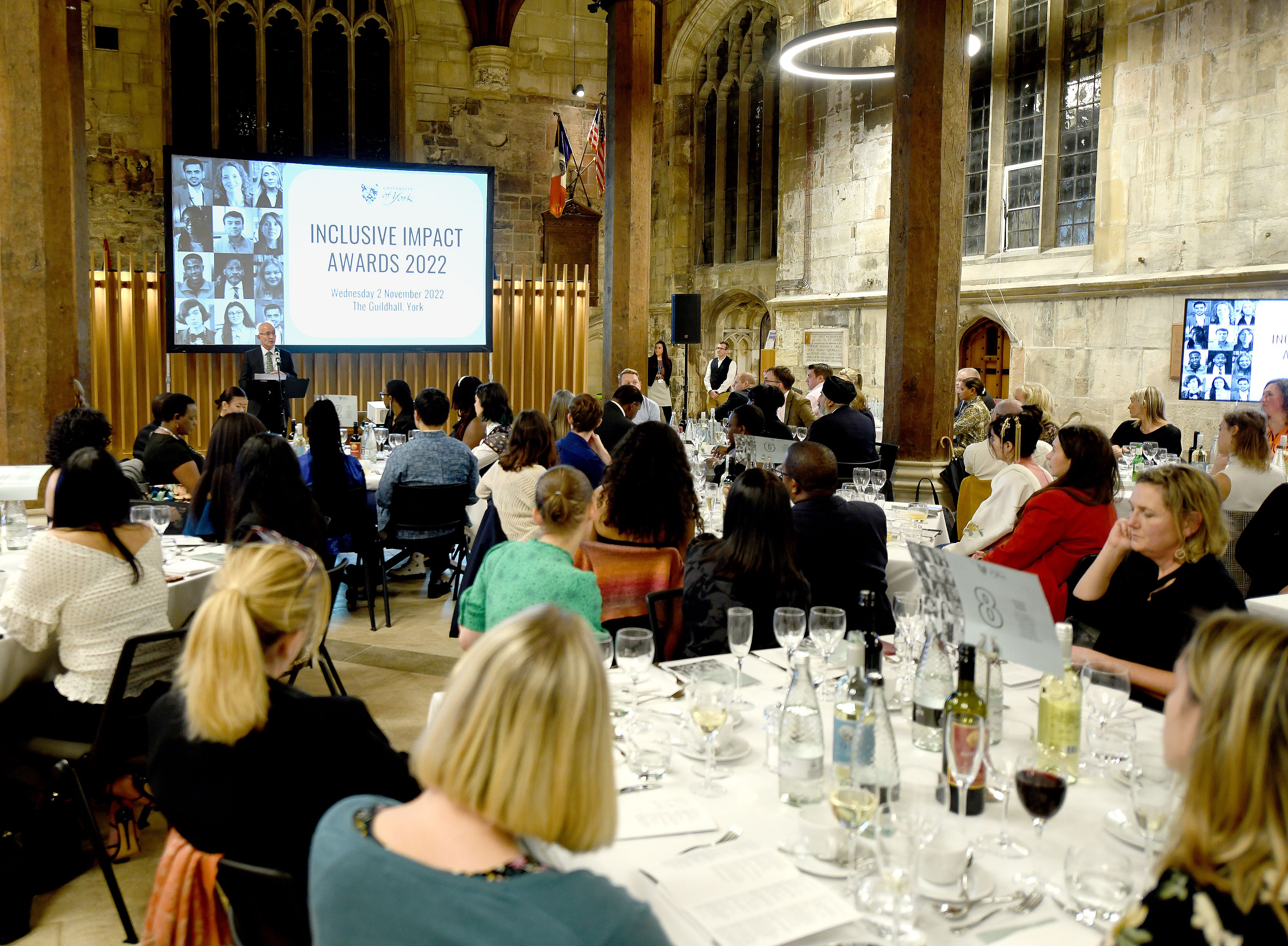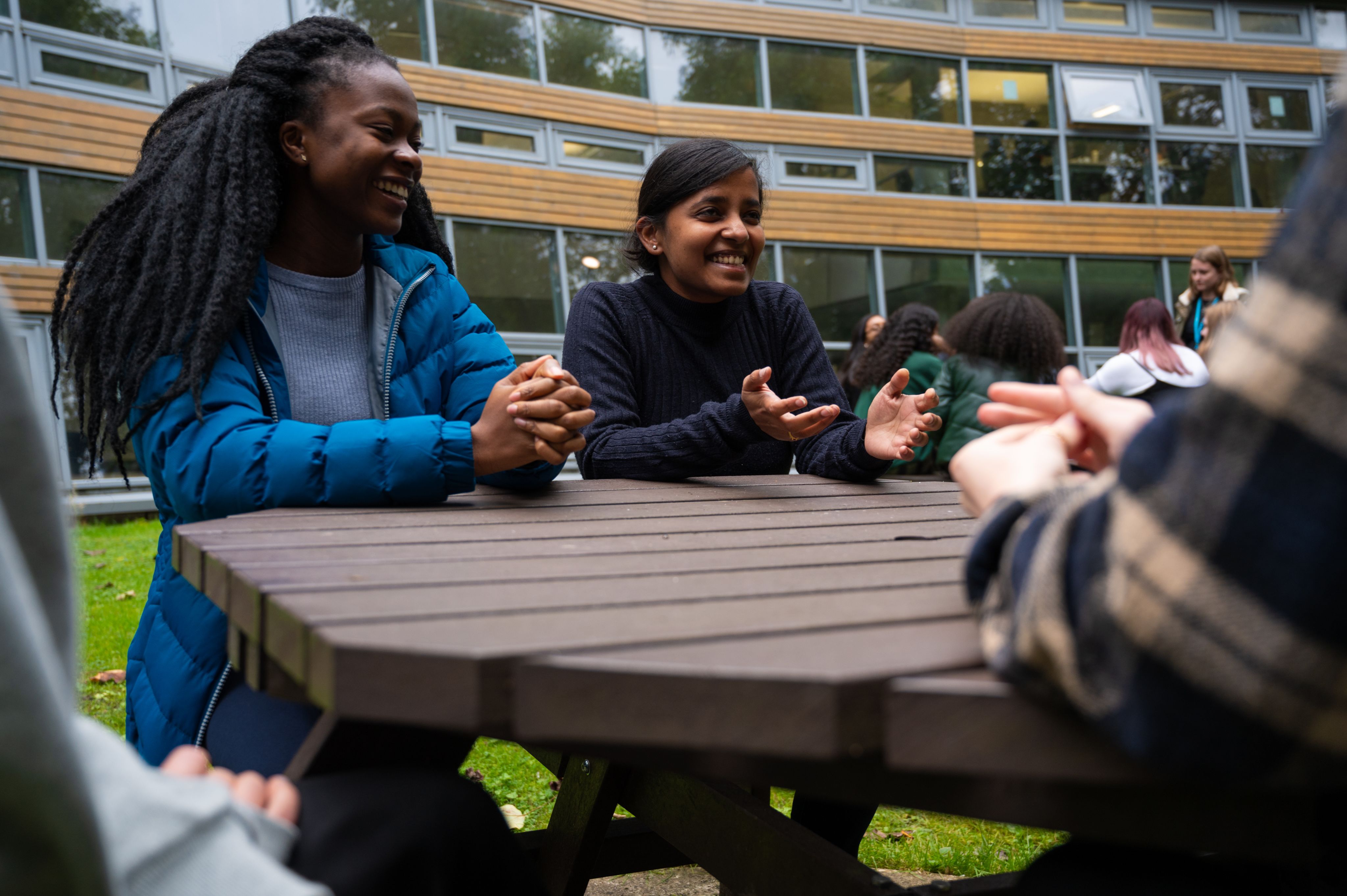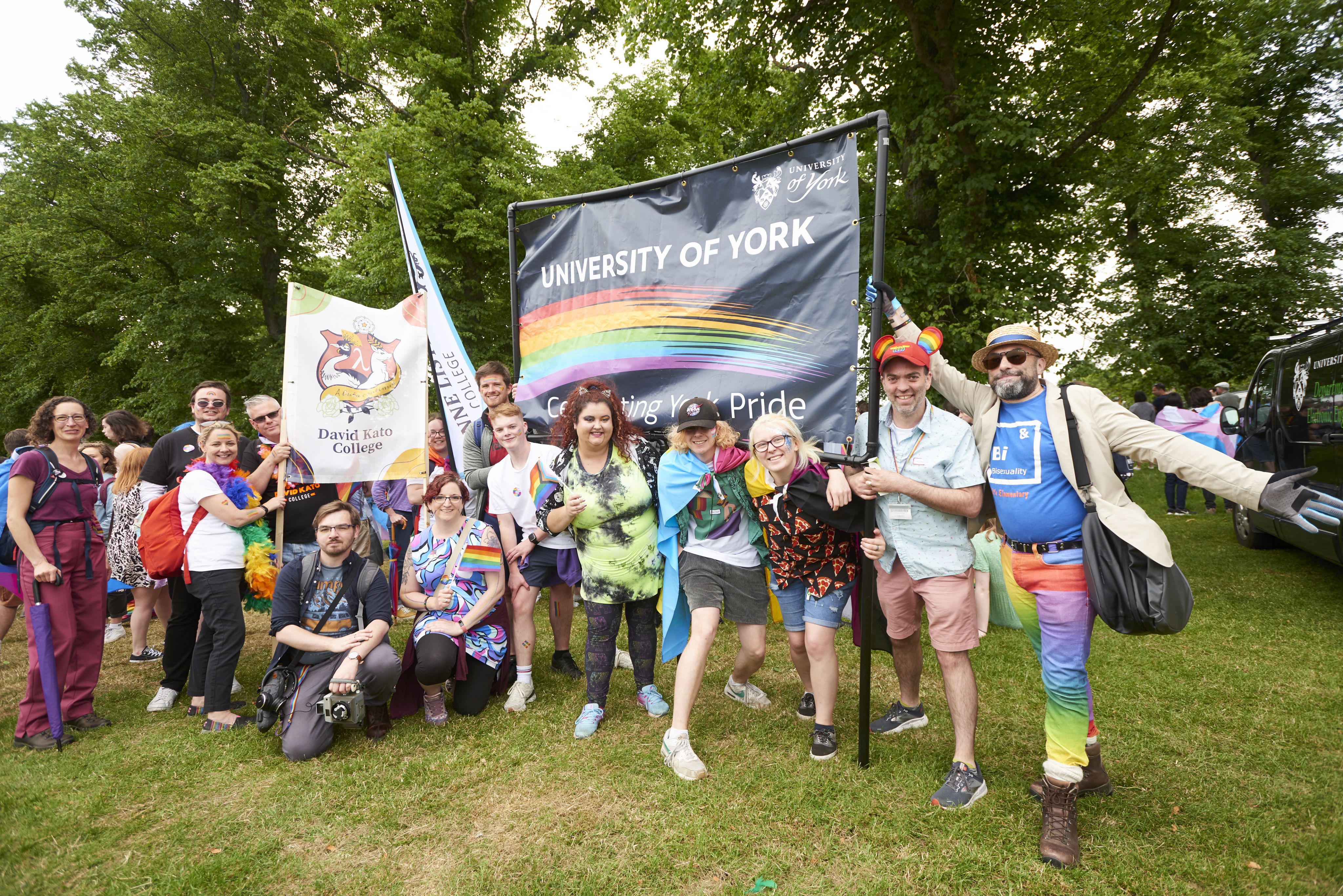Equality, Diversity & Inclusion Committee
Annual Report 2021/22

The prominence and recognition of EDI at the University continued to grow in 2021/2022.
This is reflected in the University's 2030 Strategy, which has EDI at its heart.
"Our achievements from 2021/22 bring momentum but we still have much to do to truly realise our EDI vision and commitments. We will always be honest in recognising this, including acknowledging our own institutional shortcomings, to ensure we achieve systemic and long lasting change."

2021/22 highlights include...
• Development of a new campus nursery
• Creation of the EDI Exchange
• Investment into widening access programmes including Black Access
• Launch of a six-month Reciprocal Mentoring Programme pilot partnering Black Asian and Minority Ethnic staff with senior leaders
• Continued funding for the Daphne Jackson Fellowship for those returning to a research career after a career break
• A collaboration with four other Yorkshire universities to improve access of Black Asian and Minority Ethnic candidates in postgraduate research
• Our first ever Inclusive Impact Awards
And more...

Changes introduced to the University's academic promotions process in 2020/21 led to...
• A 39% increase in applications from women and an increased success rate of 8.5%.
• A 111% increase in applications from Black, Asian and Minority Ethnic candidates and an increase of 56% in successful applications from Black, Asian and Minority Ethnic women.
These applicant numbers and success rates have been sustained in the 2021/22 promotions round.
In 2022, the University published its first ever Ethnicity Pay Gap Report, alongside its statutory Gender Pay Gap Report.

How we're making our University more inclusive
Work is continuing to decolonise and diversify our curricula and shape our approach to inclusive assessment, guided and monitored by Inclusive-Learning@York and the Inclusive Learning Steering Group.
Highlights for Inclusive-Learning@York include development of an Inclusive Learning for Students MOOC, and a collaboration with Maastricht University on decolonising and diversifying the curriculum.
The University's Student Expert Panel hosted their first two 'Middle Ground' discussion events last year, designed to create space to normalise difficult conversations across the University community around race, class and intersectionality. Over 160 staff and students have engaged in these events so far and the next event is planned for March 2023.
The Sexual Violence Steering Group was established, and action plan published, to promote and maintain a culture in which sexual violence and harassment are challenged and responded to.
During 2021/2022, there were 357 student reports of bullying, harassment and discrimination via the University’s Report & Support tool, signalling both challenges in student experience, and growing confidence in mechanisms to report.
The online tool has been extended for staff as an additional reporting channel.

In the news
The University’s long-term commitment to greater gender equality was recognised in the Times Higher Education Impact Rankings.
The University ranked 44th for Gender Equality out of 1,400 institutions.
The E-Accessibility Working Group (part of the Disability Inclusion Framework) was awarded a national Collaborative Award for Teaching Excellence (CATE) from AdvanceHE.
This recognises the Group’s outstanding work to promote digital accessibility awareness and good practice.
Our highly successful fourth annual Women in Research conference took place in March 2022.
The fifth is planned for March 2023, with workshops and talks on the theme of 'Embrace Equity'.
“Despite tremendous progress on our EDI work and an increased awareness about the importance of EDI across the University, key external and institutional challenges still remain”

Our challenges
Much work still needs to be done to ensure we reduce our gender, ethnicity and disability pay gaps and to hit our 2030 target of eliminating these gaps completely.
While the ethnic diversity of the student body as a whole is improving, in 2021-22, the proportion of entrants from a Black background fell to 1.9%, – just 79 of the 4,246 students who joined us this year.
Our focus should be on a university-wide approach to increasing the ethnic diversity of our applicant pool, as well as making important changes to the way we engage with diverse communities.
The introduction of the Higher Education (Freedom of Speech) Bill will impact how universities need to work to protect freedom of speech and academic freedom.
The challenge for York will be to continue to build clear principles and mechanisms for managing contentious events, and deciding how to protect and respect our minoritised staff, students and local communities while balancing the need to facilitate rigorous discussion of academic ideas.

Priorities for the year ahead and beyond
• Evaluating the impact of the 2017-2022 EDI Strategy and developing a new EDI roadmap to support the University’s 2030 strategy.
• Accelerating work to eliminate pay gaps, including the establishment of a Pay Gap Working Group.
• Working with student groups and our equality networks to actively understand and address new and emerging challenges, including the long-term impact of Covid.
• Continuing to build a physical and cultural environment of inclusion, tolerance and respect while balancing our commitment to upholding and encouraging debate and freedom of speech.
EDIC’s work is underpinned by the continued strength of the Athena Swan Steering Committee, Race Equality Coordination Group and Disability Inclusion Framework
